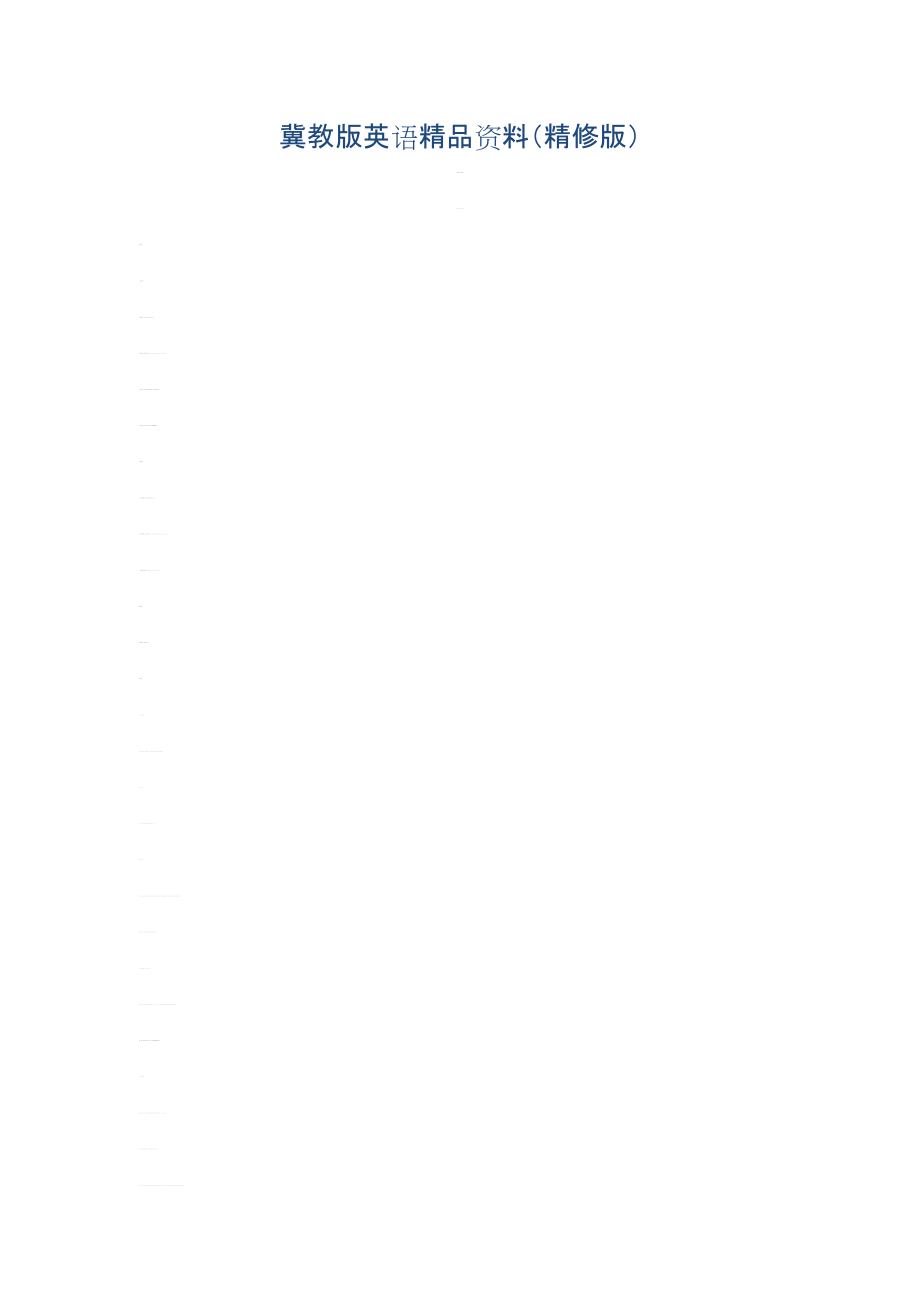《【冀教版】英語四年級(jí)上冊(cè)導(dǎo)學(xué)案Lesson 15精修版》由會(huì)員分享�����,可在線閱讀����,更多相關(guān)《【冀教版】英語四年級(jí)上冊(cè)導(dǎo)學(xué)案Lesson 15精修版(2頁珍藏版)》請(qǐng)?jiān)谘b配圖網(wǎng)上搜索。
1�、冀教版英語精品資料(精修版)
冀教版 四年級(jí)上冊(cè)
Lesson 15 In the City
教學(xué)目標(biāo):
1. 知識(shí)目標(biāo):
學(xué)生能聽懂、會(huì)說���、認(rèn)讀并書寫單詞street??????
學(xué)生能聽懂��、會(huì)說句子Where is the zoo�?Go straight and turn left right.
2. 能力目標(biāo):在日常生活中注意觀察,并用簡單的英語對(duì)話��。
3. 情感目標(biāo):培養(yǎng)學(xué)生在日常生活中準(zhǔn)確問路指路����。
教學(xué)重難點(diǎn):
1. 學(xué)生能聽懂、會(huì)說����、認(rèn)讀并書寫單詞street??
2. 學(xué)生能聽懂�、會(huì)說句子Where is the zoo?Go straight and t
2��、urn left right.
3. 聽懂指令并做動(dòng)作go straight�,turn left,turn right.
教具準(zhǔn)備:
多媒體課件���、小黑板��、磁扣
教學(xué)過程:
1. Greetings��!
T: Hello, boys and girls. I need some help. Can you help me?
Ss: Sure!
T: I want to read books. Where can I go?
Ss: Library
Then review these words: zoo, restaurant, park, school, toy shop
3���、and glue the pictures on the blackboard.
Look! This is a map. Is the park near the zoo?
Is the school far from the ---?
Draw the street. Look! Boys and girls. It’s a city now. Help them to understand city and street.
設(shè)計(jì)意圖:通過討論復(fù)習(xí)一些地點(diǎn)�,為后面問路指路做準(zhǔn)備���。
2. Leading in:
Glue Danny on the street. Today
4����、 Danny is lost. He wants to go to the zoo.
Can you help him? First, go straight and turn left.
Now, look at the pictures and read the words: go straight, turn left, turn right. Play the audiotape a few minutes.
3. Practice:
A:Listen and do it. Students listen and do the action.
B:Show the w
5��、ay. Look at the PPT and try to say the way.
Where is the zoo?
Danny is lost. How can he go to the zoo? Listen.
Students listen the dialogue and repeat.
Practice in pairs.
4. Let’s do it. Try to make more dialogues.
A:Excuse??me, can you help me? Where is the ?
B:Go straight, turn ri
6����、ght. There is the .
A: Thank you.
B: You’re welcome.
Ask some groups to show their dialogues.
設(shè)計(jì)意圖:情境創(chuàng)設(shè),學(xué)以致用�����。
5. Homework
Try to show the way for your friends.
板書設(shè)計(jì):
A:Excuse??me, can you help me? Where is the ?
B:Go straight, turn right.
A: Thank you.
B: You’re welcome.
 【冀教版】英語四年級(jí)上冊(cè)導(dǎo)學(xué)案Lesson 15精修版
【冀教版】英語四年級(jí)上冊(cè)導(dǎo)學(xué)案Lesson 15精修版

